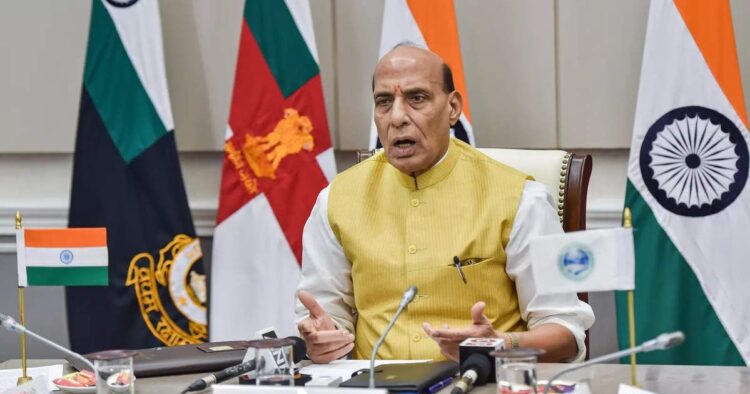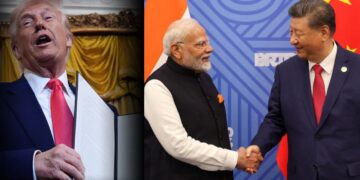In a recent interview with ANI, Bharat’s Defence Minister, Rajnath Singh, issued a stern warning to Pakistan regarding terrorism. Singh stated that Bharat is prepared to collaborate with Pakistan to combat terrorism if the neighboring country feels incapable of handling the issue on its own. However, he emphasized that Pakistan would face consequences if it attempted to destabilize Bharat through terrorist activities.
EP-158 with Defence Minister Rajnath Singh airs today at 5 PM IST
''I was not given parole to attend my mother's last rites during the Emergency, and now they (Congress) call us dictators," Defence Minister Rajnath Singh reveals the untold story of the 1975 Emergency
"If… pic.twitter.com/ORSOey6Fav
— ANI (@ANI) April 11, 2024
Singh’s remarks come in the wake of escalating tensions between the two nations, particularly following reports of targeted killings carried out by Bharat in Pakistan since 2020. The Defence Minister reaffirmed Bharat’s stance that it has never initiated aggression against any country or sought to annex its territory. Nonetheless, he asserted that Bharat would not hesitate to retaliate against any threat to its peace and security.
The interview also touched upon Singh’s personal experiences during the Emergency period in Bharat, recalling how he was denied parole to attend his mother’s last rites. Singh juxtaposed this incident with criticism from the opposition, particularly the Congress party, which he accused of labeling the ruling government as dictatorial.
Singh’s statement about potential cross-border actions to eliminate terrorists fleeing into Pakistan garnered significant attention. He asserted that if terrorists attempted to disrupt peace within Bharat, Bharatiya forces would not hesitate to enter Pakistan and neutralize the threat.
However, Pakistan swiftly responded to Singh’s remarks, deeming them provocative and detrimental to constructive engagement between the two countries. The Pakistani Ministry of Foreign Affairs emphasized its nation’s resolve and capability to protect and defend itself against any external threats.
The exchange between the two neighboring countries underscores the persistent tensions and challenges in their bilateral relations, particularly concerning issues of terrorism and cross-border security. Despite diplomatic efforts to foster dialogue and cooperation, deep-seated mistrust and conflicting interests continue to hinder progress towards lasting peace in the region.

















Comments